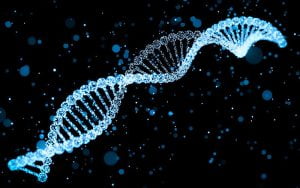Genealogical DNA and Ethics in Law
How would you feel if your DNA was used to convict a family member?
Last week, news consumers were divided on the use of this tactic to identify and arrest Ibrahim Ali who was recently convicted of the murder and sexual assault of a 13 year old victim in 2017 in Burnaby.
Investigators went undercover at a 2018 Kurdish New Year Celebration handing out samples of tea in hopes of collecting DNA from their suspect – and it worked. Police were able to obtain a sample from a relative of the suspect. The sample was analyzed and compared against the DNA sample collected from semen found inside the victim, and the results were conclusive: the sample collected at the Kurdish New Year Celebration belonged to the brother of the whomever’s DNA was found inside the victim. This critical development resulted in the positive identification of Ibrahim Ali, his subsequent arrest and ultimately, his conviction.

However, certain civil liberties advocates have decried this investigative strategy, claiming it infringes on the privacy rights of people who have their DNA seized when they themselves are not suspected of any wrongdoing. Further, genealogical DNA testing is not frequently accessed or available technology in Canada. As a result, the analysis is often done in the United States, further stoking concerns from privacy experts. Police are required to maintain a “chain of custody” for all exhibits in a case. When the exhibits are forensic material, it is especially important that the chain of custody be meticulously maintained. This becomes increasingly difficult when exhibits leave the custody of Canadian agencies. Further, labs in the United States (and beyond) may not be accredited to the same standard as a Canadian lab. And of course, when private and sensitive material exists in the database of outside agencies, there is always a security risk.
Genealogical DNA testing and its use in criminal law is still very much in its infancy – in Canada, anyways.
This investigational technique gained notoriety in 2018 when it was used to identify and convict the Golden State killer in California, and made headlines again in December 2022 when it was used to identify Bryan Kohberger, currently awaiting trial for the murder of four college students at the University of Idaho.
Canadian Courts and legislators are no doubt paying close attention to developments in the field of Genealogical DNA testing. It is more important now than ever – in the age of ever-advancing scientific exploration and sophisticated tools like AI – that the Courts, and the law, can maintain pace.
